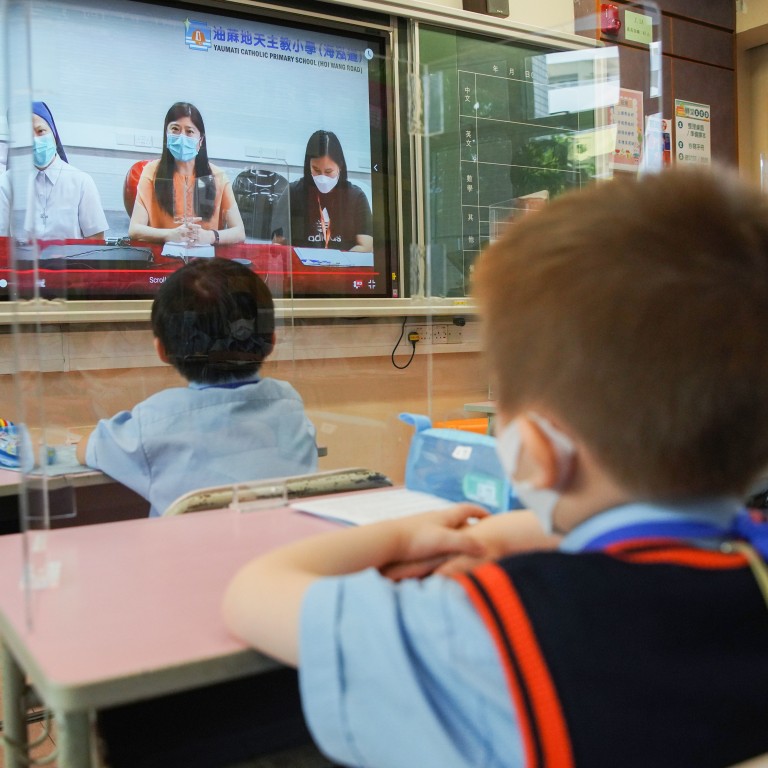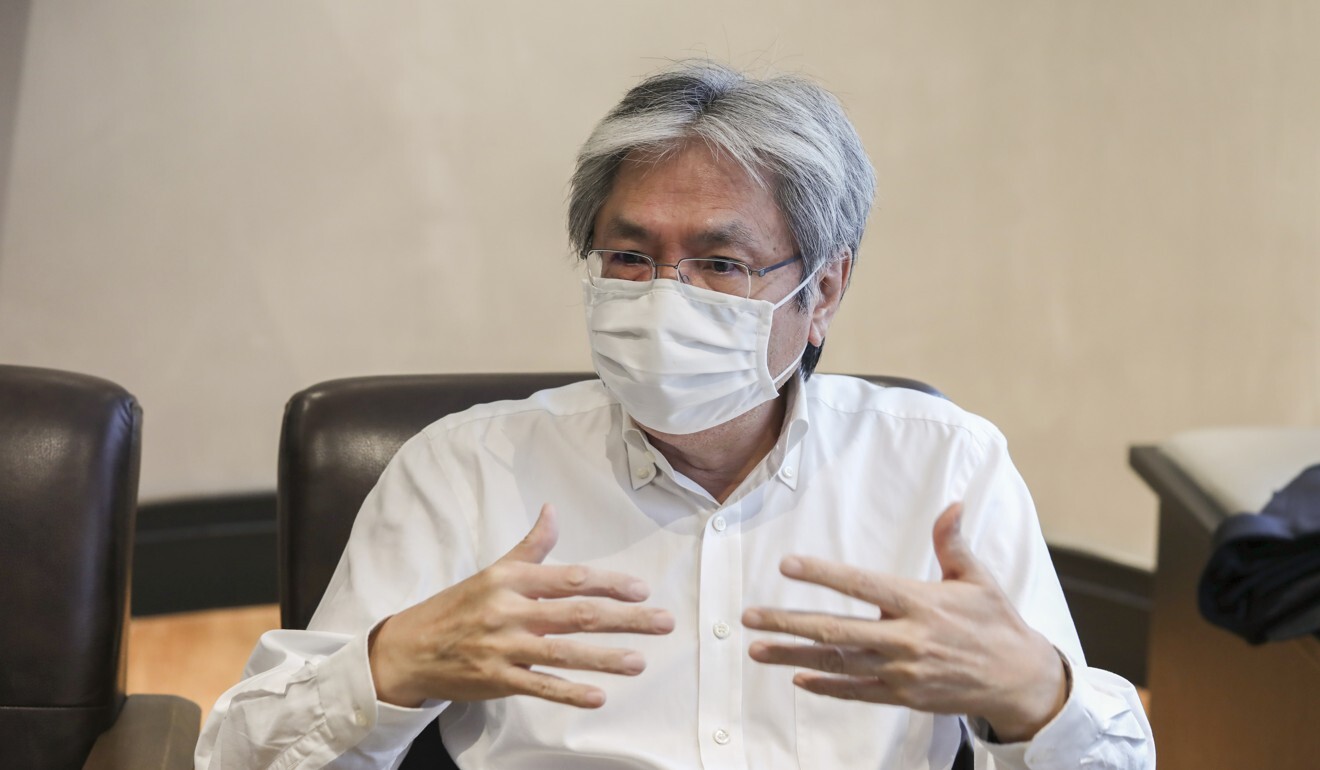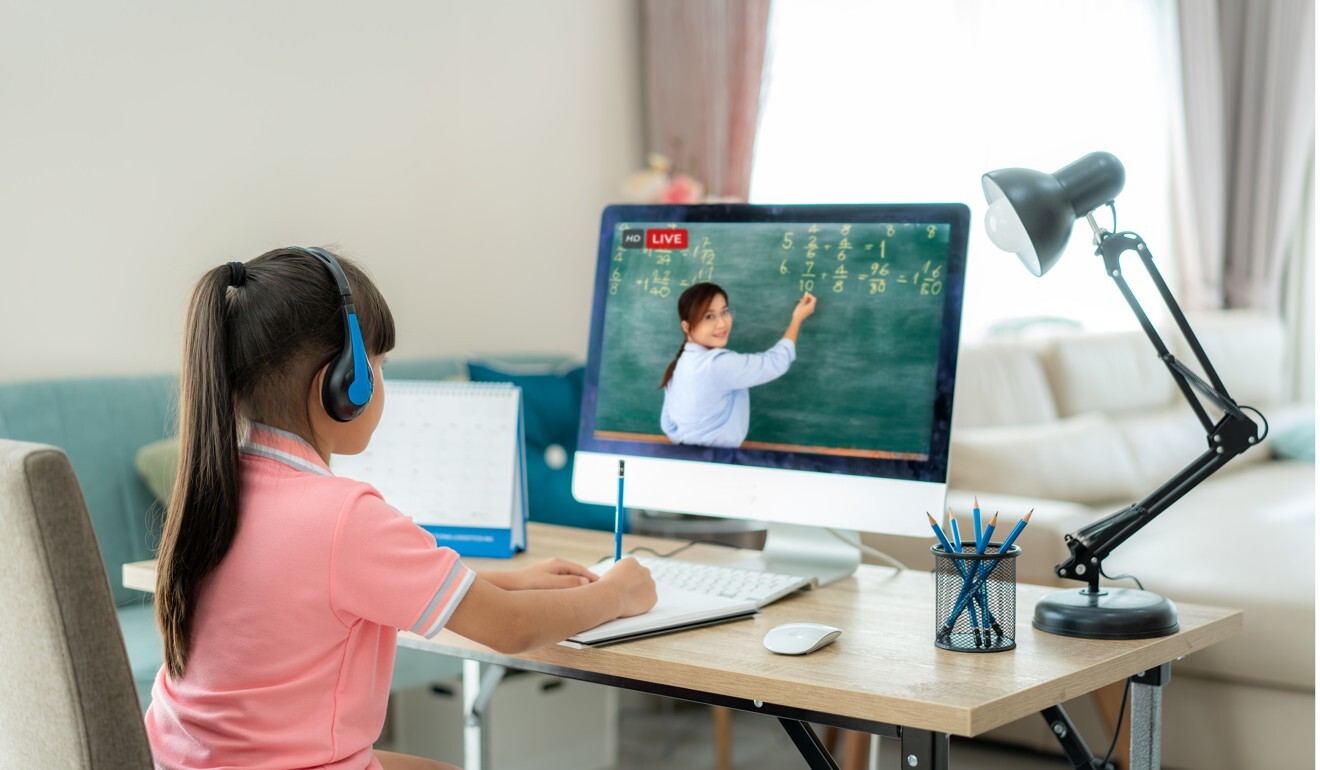
Covid-19 won’t last forever, but online learning here to stay, former Hong Kong finance chief says in predicting ‘new normal’ for education
- John Tsang, who founded the non-profit Esperanza in 2018, foresees blend of traditional classroom teaching, remote classes going forward
- City’s teachers have shown ability to quickly adapt, he tells Post, but resources still needed for lower-income families, including free Wi-fi
John Tsang Chun-wah, who served as the government’s financial secretary for a decade before resigning to run for chief executive in 2017, also said he believed a bottom-up approach to pushing the government to roll out new policies is more effective than waiting for the administration to adapt to change and develop their own ideas.
The 69-year-old, who took up various roles in the private sector after losing his bid to become the city’s leader, founded the non-profit organisation Esperanza in 2018, with the aim of promoting the use of technology in schools.

Over the past year, the sector had been embroiled in controversies – from the arrest of thousands of students during last year’s anti-government protests to the deregistration of a teacher over lesson materials that touched on Hong Kong independence.
Tsang’s former boss, Leung Chun-ying, who served as chief executive between 2012 and 2017, has repeatedly pressed the government to publicise the names and schools of teachers found guilty of professional conduct in protest-related cases.
It’s unfortunate that only amid the Covid-19 pandemic has the whole process of adapting to online teaching and the use of technology in education been sped up
But three years after leaving the government, Tsang declined to comment on these incidents, saying his focus was strictly on education and that he would not get involved in politics.
“The field of education is very big. What [the organisation I founded] is now doing is very moderate. We don’t look at politics, but only focus solely on education itself,” the former top official said in an interview with the Post last week.
Tsang, who spent most of the time discussing how he believed technology would change the field of education, said the Covid-19 pandemic had made many schools and educators realise their need to pick up new skills.
While never working for the education department during his more than three decades in government, Tsang still had experience in the sector, including teaching physics in the US before returning to Hong Kong in 1982, which prompted him to delve back into the field after his retirement.
Hong Kong students adapt to online learning amid class suspension over pandemic
“Technology in education has been available for years. It’s unfortunate that only amid the Covid-19 pandemic has the whole process of adapting to online teaching and the use of technology in education been sped up,” he said.
“Still, amid the pandemic, we could see many pupils still yearned for face-to-face classes. Therefore, I believe the future for education will be blended learning, with a combination of both online and on-site lessons for students.”
Younger children may benefit more from face-to-face teaching, as they should spend less time on electronic devices, he said, but older ones may be able to take more classes virtually.
But, according to Tsang, the early stages of the pandemic showed some schools “were not well-prepared” to switch fully to an online mode.

Experts have also warned of a widening gap between more well-off pupils and those from lower-income families, with studies during the pandemic showing about 10 per cent of students had no electronic devices at home.
Tsang said the government should be providing more resources for schools to facilitate online learning, while also speeding up making free Wi-fi available across the entire city. Educators also showed an ability to quickly adapt and harness technology when remote teaching became the “new normal”, he added.
“It is not an issue of how much [public] money is allocated to the education sector, but rather how are resources being allocated … For instance, having Wi-fi services available citywide is not really that hard to achieve. It is also not a very expensive thing to do.”
Opinion: pandemic has prompted shift to online learning, raising questions about how we value education
He added: “Many charities and non-governmental organisations have been offering hardware support to lower-income families as well … I believe with their help, it’s not a problem for every kid to own an electronic device [to use for online learning].”
Tsang, who said he attempted to facilitate the use of electronic devices at school when serving as financial secretary, declined to comment on the current administration’s online learning policies amid the pandemic.
But any changes to government policy were best pursued with a bottom-up approach, he said, with non-governmental organisations piloting new ideas before the administration then picked them up.
“The government is like a gigantic aircraft carrier. To turn the vessel towards another direction, it takes a long time. It can also make a lot of waves in the process,” he said.
“If we wait for the government to do everything, we probably would not be able to progress. Many [charities] and NGOs are relatively more flexible to react to changes, which makes it more effective to [change existing practices and policies].”

